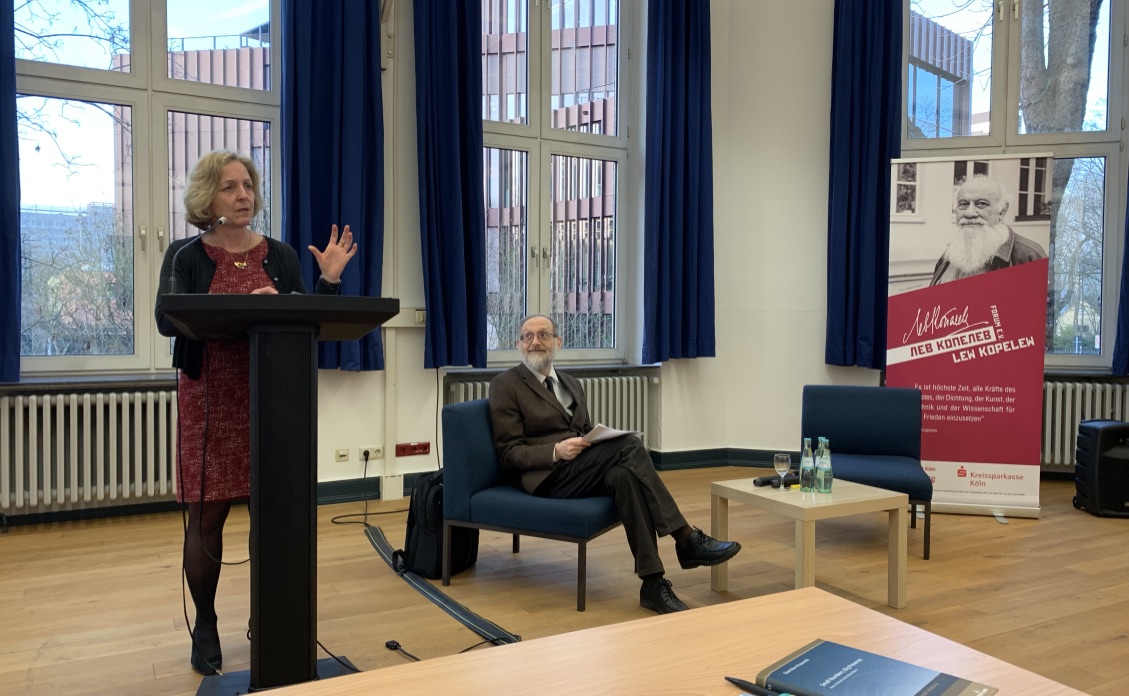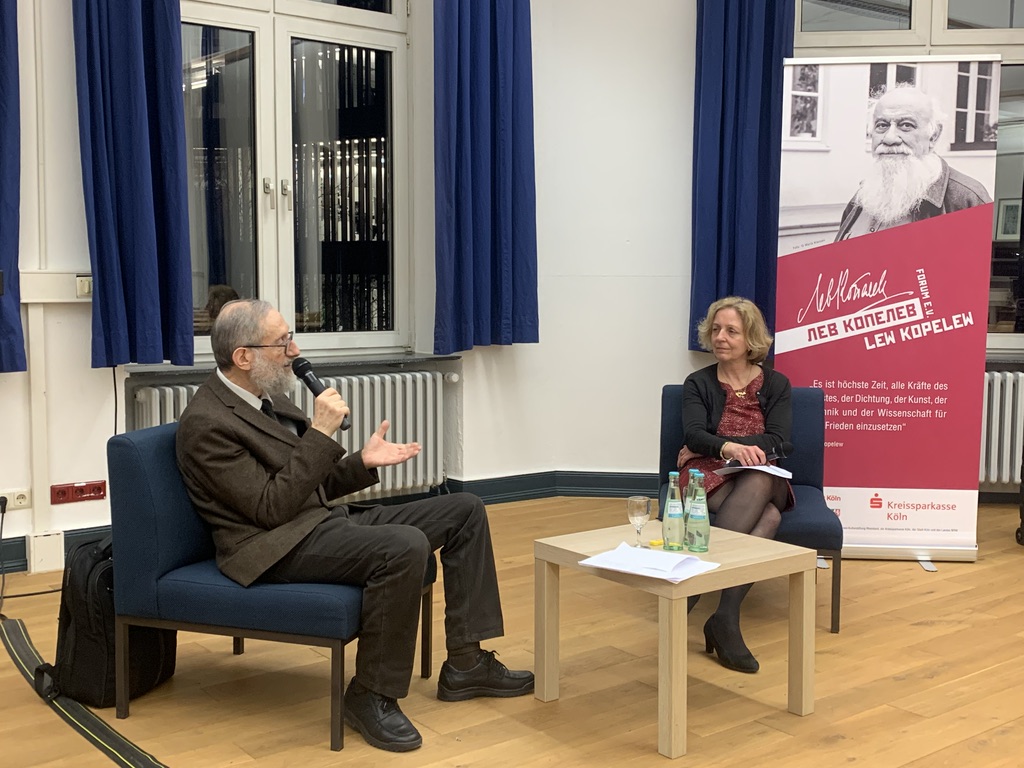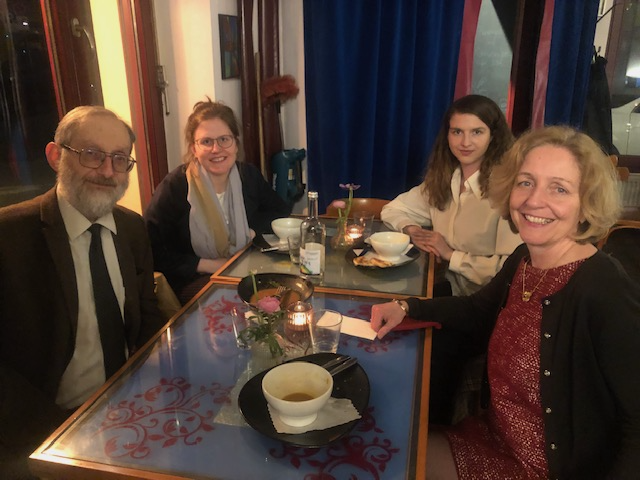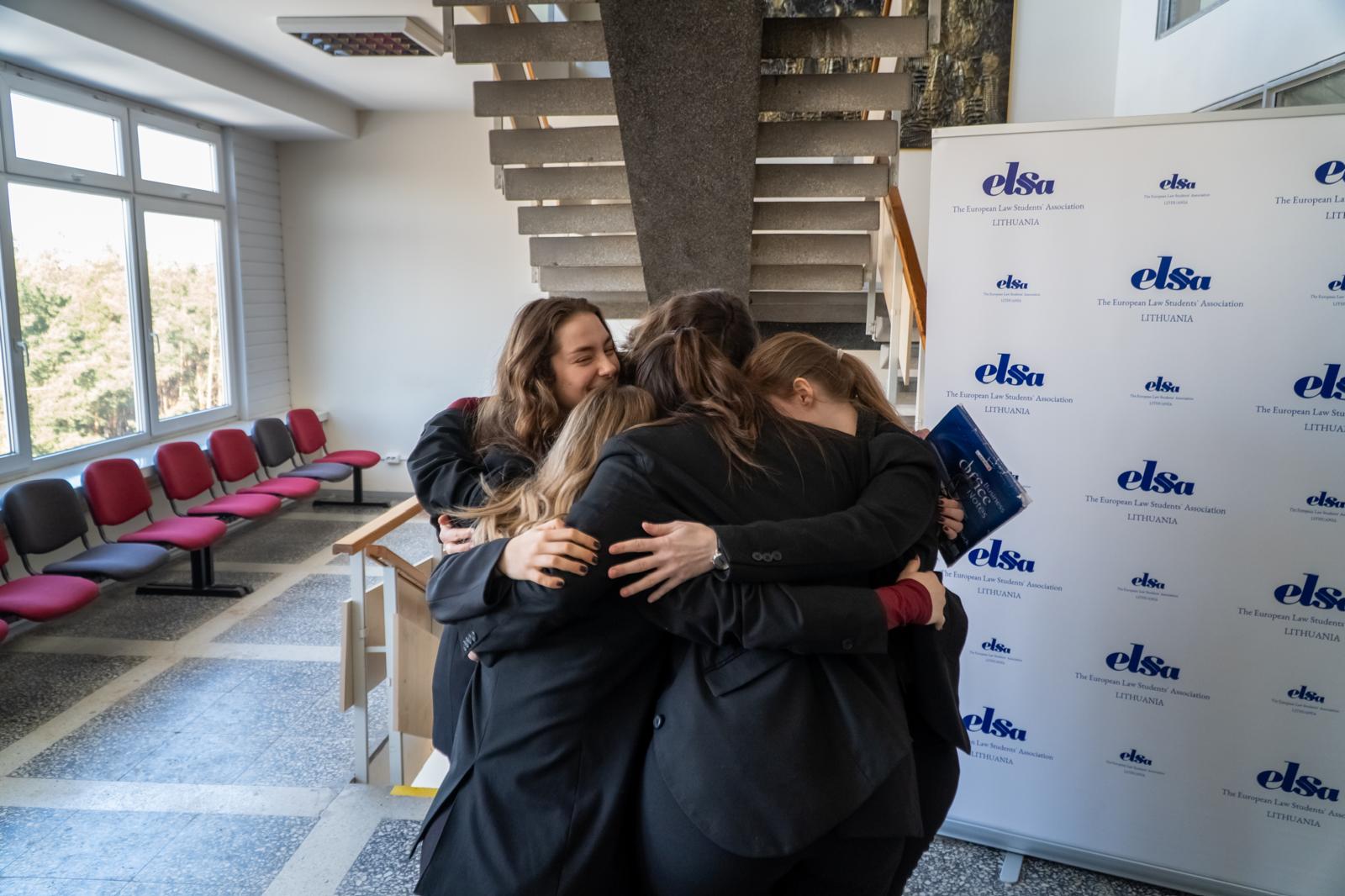German-language Master's course on German law starts in the summer semester in Cologne
Welcoming the Georgian students on Thursday, 10.04.
As part of the Master's program in German Law, which has been running since 2007 and is a cooperation between the law faculties of the University of Cologne and the Ivane Javakhishvili State University of Tbilisi (Georgia), the students of the current year were warmly welcomed last Thursday.
After successfully completing the winter semester in Tbilisi under the guidance of Cologne lecturers, six Georgian students are now continuing their Master's studies in Cologne. The program coordinators, Professor Angelika Nußberger and Professor Christian von Coelln, welcomed the group at the Academy for European Human Rights Protection.
The aim of the DAAD-funded course is to obtain an LL.M degree from the University of Cologne, to teach the basics of the German legal system and to develop skills in the comparative law of two legal and state systems.
Welcome to Cologne!
Prof. Nußberger as a guest on the NDR television format “DAS!”
On May 9, Prof. Dr. Angelika Nußberger, university professor and former Vice President of the European Court of Human Rights, was a guest on the NDR program “DAS!”. The discussion focused on the importance and global validity of human rights - topics that she also explores in her current book “Free and Equal - Human Rights”. With her expertise, she provided insights into the challenges and opportunities of human rights work and emphasized the central role of freedom, equality and human dignity.
Watch the entire broadcast here. [German]
The Academy in deep mourning
Lorenz Wielenga, PhD student at the Academy for European Human Rights Protection since January 1, 2022, passed away on April 25, 2025 after a long, serious illness at the age of 28. With his kindness and warmth, his sensitivity, his social commitment and also with his wealth of ideas and academic brilliance, he was a role model for everyone.
We will name our library the Lorenz Wielenga Library after him and keep his memory close to our hearts.
Small Numbers, Big Presence: Jews in Poland after World War II | Book launch and discussion with Stanisław Krajewski
Small Numbers, Big Presence: Jews in Poland after World War II
Book launch and discussion with Stanisław Krajewski
On March 10, 2025, Stanisław Krajewski, Professor of Philosophy at the University of Warsaw, was a guest at the Academy for European Human Rights Protection at the University of Cologne and presented his book Small Numbers, Big Presence: Jews in Poland after World War II (Peter Lang), published in 2024. Against the background of the great importance of Polish Jewry for Jewish religious traditions on the one hand and its almost complete annihilation in the Shoah on the other, Stanisław Krajewski, influenced by his personal experiences, traces the development of Jewish life in Poland from 1945 to the present day. In his lecture, he gave an overview of the period since the Second World War, which he described as a new, albeit narrower, chapter in the thousand-year history of Jewish life in Poland, focusing in particular on questions of remembrance.
Stanisław Krajewski identifies the anti-Semitic campaign initiated by the Communist Party leadership in 1968 as the first decisive event. Until then, Polish Jews who had survived the Shoah and the war and decided not to emigrate had striven to assimilate and “flee from the memory” of their Jewish roots. Many had thus turned to the communism that prevailed in Poland at the time, usually trying to be “as non-Jewish as possible”. The anti-Jewish smear campaign of 1968, as a result of which at least 13,000 people were forced to leave the country, was a turning point and became a formative experience for the Jewish post-war generation, to which the author also belongs.
While Jewish institutions were barely visible or in crisis in Poland until 1989, a process that Krajewski describes as de-assimilation began after the fall of communism and continues to this day: a (re-)rapprochement with one's own Jewish roots, an ever-increasing importance of Jewishness for one's own identity, which takes its place alongside Polish identity without replacing or pushing it back. This development went and still goes hand in hand with a rapidly growing general interest in everything Jewish in Poland. One of the factors that promoted de-assimilation was also the interest of the Catholic Church in a dialog with people of Jewish faith. As a co-founder of the Polish Council of Christians and Jews in 1989, Stanisław Krajewski is still committed to Christian-Jewish encounters in Poland today. At the end of his lecture, he spoke about some of the challenges in the dialog, but also its concrete forms. In the subsequent discussion, moderated by Angelika Nußberger, Director of the Academy for European Human Rights Protection, these and other questions were discussed in greater depth.
The event was a cooperation between the Cologne-Bonn branch of the German Association for East European Studies (DGO) and the Lew Kopelew Forum. It was funded as part of the research project Memocracy - The Challenge of Populist Memory Politics for Europe: Towards Effective Responses to Militant Legislation on the Past.
Public Dialogue with Navid Kermani and Natan Sznaider at the Academy for European Human Rights Protection
On 1 March 2025, the Academy for European Human Rights Protection hosted an evening event entitled "Between the Lines: Kermani & Sznaider in Dialogue". The public discussion brought together two prominent intellectuals - writer and Orientalist Navid Kermani and sociologist and author Natan Sznaider - for a timely and thoughtful exchange on the ongoing conflict in the Middle East.
The event was moderated by Professor Dr. Dr. Angelika Nußberger, Director of the Academy, and welcomed an audience of over 45 participants. Kermani and Sznaider, who have corresponded since shortly after 9/11, reflected on their recently published book “Israel: Eine Korrespondenz”, which collects their letters and explores different perspectives on the Israeli-Palestinian conflict - perspectives grounded in both personal commitment and scholarly insight.
Their dialogue addressed the polarising effects of war, the challenges of fostering solidarity across cultural and religious divides, and the urgent need for new frameworks for cooperation.
The event was jointly organised by the Academy for European Human Rights Protection at the University of Cologne, the Center for Reconciliation Research at the University of Bonn and the Bonn Academy for Research and Teaching of Practical Politics (BAPP).
Prof. Nußberger in the podcast BR Kulturleben - War crimes in Ukraine - How much power does international law have?
Prof. Nußberger was a guest on the BR Kulturleben podcast with the topic “War crimes in Ukraine - How much power does international law have?”.
In the podcast, Prof. Nußberger discusses the challenges of international criminal law in the field of tension between law and geopolitical reality together with human rights lawyer Wolfgang Kaleck, co-founder and Secretary General of the European Center for Constitutional and Human Rights and presenter Andrea Mühlberger.
HPM 2025 Regional Round in Vilnius
Great news from Vilnius!
This year's Cologne HPMCC team has qualified for the final round of the Moot Court Competition in Strasbourg!!!
The three-day competition in Vilnius was a complete success. We are proud of our Mooties Alessandra Reputin, Mounira Hssaine, Julie Dovern and Nil Su Ketenci, who were able to demonstrate their human rights knowledge and training over the last months during their oral pleadings in Vilnius. The team performed with great team spirit, positivity and confidence in this intense competition.
The regional round began with the opening ceremony on Friday afternoon in Vilnius City Hall, where the participating teams met each other for the first time and were warmly welcomed by the organisers from ELSA Vilnius.
Later we explored Vilnius on a snowy city tour and enjoyed a nice get-together with the other teams before the next day, the representatives of the defendant were finally able to demonstrate their skills in their oral pleadings. On Sunday morning the applicants oral pleadings followed.
Our stay ended with an exciting prize-giving ceremony and a closing party at which all the teams celebrated their achievements by singing karaoke together.
Both the applicant and the respondent were able to achieve good scores from the judges and took a great deal of experience back to Cologne with them.
A special thank you to the organisers from ELSA Vilnius and to all the other participating teams who made the regional round such a wonderful experience!
Prof. Nußberger in an interview on current research on Universalism and Particularism
Law and history are inextricably intertwined, particularly in the context of the evolution of human rights. What significance do historical legal texts hold in this regard today? The fourth phase of the Kolleg Research Group (KFG) on Universalism and Particularism in European Contemporary History is devoted to an in-depth examination of this compelling subject.
Our Director, Prof. Dr. DDr. h.c. Angelika Nußberger, engaged in a discussion on these matters with L.I.S.A., the academic portal of the Gerda Henkel Foundation.
Access the full interview here. [German]
"Völkerrecht und Geschichte": Prof. Nußberger, Prof. Creß and Prof. Klose as guests at L.I.S.A.
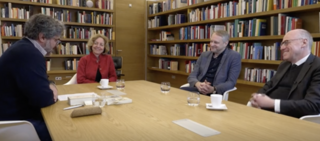
Prof. Nußberger was a guest on L.I.S.A., the science portal of the Gerda Henkel Foundation, and discussed the topic of “International Law and History” with the international law expert Prof. Claus Kreß and the historian Prof. Fabian Klose using the example of current international conflicts and with a view to historical international law. The video recording is now available on L.I.S.A.. You can find the link here.
Debate: The Omnipresence of Divergent Historical Narratives in Law and Politics
The past feels omnipresent in today’s world. Wars are waged and defended in the name of history, while domestic and international politics revolve around struggles over collective memory.
This symposium explores how memory laws and politics contribute to authoritarianism by restricting human rights and reinforcing other populist tools. Focusing on memory’s ties to illiberalism, foreign policy, and the digital age, the symposium, co-edited by Angelika Nußberger and Paula Rhein-Fischer, seeks to spark debate on the future viability of memory laws and politics.
You can read all contributions to the debate here.

